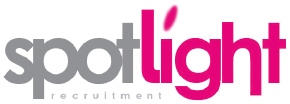Remote working has increased by 80% over the past two decades and Covid has major changes in the way we work. Offering remote working opens up your candidate market when recruiting but also provides a number of benefits like increased profitability, productivity, engagement and retention.
Given the pandemic, remote work is now embraced by businesses around the globe and hiring challenges in this challenging candidate market need to be carefully assessed. Below are some tips to help you develop and implement your own remote recruiting strategy successfully:
- Re-evaluate the interview process
Try to keep the stages in the recruitment process to a minimum and move swiftly on decisions. Talented candidates with essential skills are in high demand; if you have long recruitment processes, you are likely to lose the candidate to another company.
Think about how you need to adjust the stages of your recruitment process; consider back-to-back interviews or booking a longer time slot to speak with candidates. If candidates are expected to take part in on-site assessments, think about how you can make this fully virtual but still effective. Assessment results can help identify top performers, highlight skill areas and allow more time to discuss other factors in the interview such as the candidate’s expectations.
- Write an accurate job advertisement
While a job advertisement for a remote hire includes much of the same information as any job advertisement, there are elements of the remote hiring process you should include. Be transparent about what you’re looking for: is the position fully remote or hybrid? Are you looking for employees to work in certain time zones? Are there any travel requirements for meetings? Try to include as much information as possible and explain why this position is remote and what your company’s remote work culture and perks look like. What works for one, won’t always work for others so let candidates have all the info. We have explored this topic in more detail in our job description blog, here.
- Social media
In this challenging candidate market using an agency can allow you to headhunt on social media. Not only is the candidate pool increased by factors such as previously furloughed workers, increasing unemployment and people wanting to change their career entirely, but those who are in employment are more likely to see and reply to a recruiter if social media is a focus. Be sure to post your job advertisements on the right platforms as statistics show 52% of job seekers prefer finding a relevant new opportunity on an online job site.
- Choose the right technology for you
When carrying out interviews remotely, it is important to choose the right platform for you. Use a video conferencing platform to conduct remote interviews. Every video conferencing platform differs and when deciding on which platform to use, it is worth considering the advantages and disadvantages: some providers only allow a maximum amount of time in video chat before it cuts off whilst others might require candidates to download an app or create an account.
The remote hiring process can be complex so once you have decided on your platform, stick to it. This will prevent any unnecessary confusion further down the line as well as time spent learning different platforms. Just make sure there is always a plan B, in case there are any technical glitches. Be considerate to personal situations others have working and interviewing from home.
Another option is to ask the candidates to pre-record a one-way interview in which they answer a series of questions.
Remember, technology is not limited to virtual interviews. It can also be used to help ease the HR process such as contractual agreements and other documents. DocuSign allows employers to create and manage agreements electronically, replicating the usual process of signing a document by hand.
- Collaborative remote hiring
Collaborative hiring is a great way of getting your team involved in the remote hiring process. Future work colleagues will have the opportunity to assess, evaluate and get to know the potential hire. This will help you ensure that the remote hire is not only a good skill fit but also a cultural fit too. When involving your team make sure everyone is prepared in advance, the CV has been reviewed and the candidate has been discussed. Decide on the format of the remote interview and stick to a time limit.
Involving a wider team has advantages and disadvantages and too many opinions can weaken decision making if everyone is disagreeing. Make sure there is still a final decision maker who takes points of view on board but still moves forward.
- Create a great candidate experience
Recruiting remotely should not affect your candidate experience. It’s important to remember, candidates who are applying for a role at your company may also be loyal customers, and a negative candidate experience can turn them away.
Your aim should be to build a seamless candidate experience, even for unsuccessful candidates. This involves keeping candidates informed with plenty of communication, managing time expectations as well as ensuring the recruitment experience represents your company brand perfectly.
Statistics show 83% of job seekers are likely to research company reviews and ratings before applying for a role. Take a look at your Glassdoor reviews, encourage feedback and have open discussions on how you improve your remote hiring process.
We have explored how you attract top talent by promoting your company culture, here.
If you looking to hire for remote marketing, digital and communications roles do get in touch find out more about the clients we work with and how Spotlight Recruitment can help.
NICOLA MONGON is the MD of marketing recruitment specialists Spotlight Recruitment, specialists in marketing, digital, and communications recruitment since 2008. Read our 5* Google reviews from candidates and clients to find out more. If you would like to discuss hiring plans or find out more about us, you can reach Spotlight at 020 3008 4254 or info@spotlightrecruitment.com

